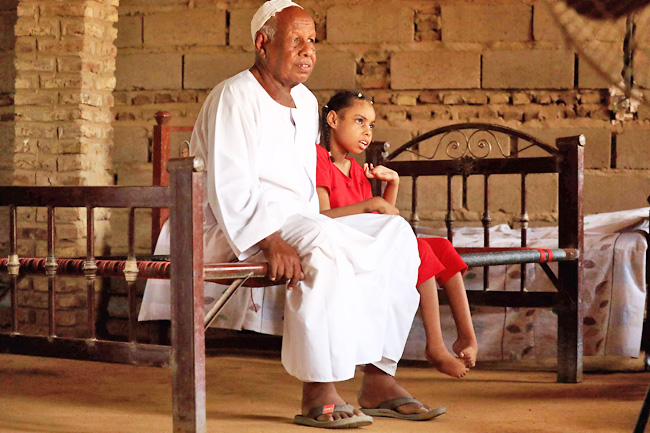BANAT, SUDAN (AFP) – Sudanese mother Awadya Ahmed has long wondered why her youngest child Talab was born blind and unable to walk; now she suspects the piles of poisonous waste left by gold miners. In recent years, a growing number of traditional miners have flocked to her village hoping to strike it rich.
But they leave behind hazardous white-powdered waste laden with toxic chemicals including mercury used in the gold extraction process. The waste is dumped near farmland, water sources and residential areas.
“His four brothers were born in good health, but Talab is the only one born after mining residues spread,” Ahmed, 45, told AFP at her home in Banat village, in River Nile state north of Khartoum.
The four-year-old lay beside her, unable to move. Artisanal gold mining is widespread across much of Sudan, employing more than two million people and producing about 80 per cent of the gold extracted nationwide, according to experts.
Sudan is one of the world’s poorest countries, and mining remains a source of fast profits attracting many. The industry has flourished since oil-rich South Sudan broke away in 2011 during the rule of now-ousted president Omar al-Bashir, a period marked by economic hardship, government mismanagement, corruption and international sanctions. But chemical contamination from artisanal gold extraction poses clear health dangers.

Mercury damages the nervous, digestive and immune systems and can be fatal. It also threatens the development of children in the womb and early in life, according to the World Health Organization (WHO).
Ahmed is not the only one of Banat’s 8,000 residents to have observed birth defects and miscarriages. In a nearby house, Awad Ali says his daughter was “a very normal child,” until she turned two. “Then she became unable to move or walk, stand up or sit down,” he said.
Community leader Algaily Abdelaziz said the problems began five years ago. “Since we saw these waste deposits appear, children have been born with deformities, and there have been still-births,” Abdelaziz said, noting 22 children had been born in the village with deformities including blindness and brain damage.
Saleh Ali Saleh, from Khartoum’s Neelain University’s Faculty of Petroleum and Minerals, notes that it is well known “that mercury is harmful to health”. A January report by Saleh and other Sudanese researchers found that around 450,000 tonnes of mining waste – rife with mercury – dot the lush green landscape of River Nile state.
Samples of blood, urine, drinking water and soil from several parts of the state have shown high levels of mercury traces, according to the report.
“People, frankly, are not concerned with removing the waste,” said head of the Sudanese Environment Conservation Society Ali Mohammed Ali.




